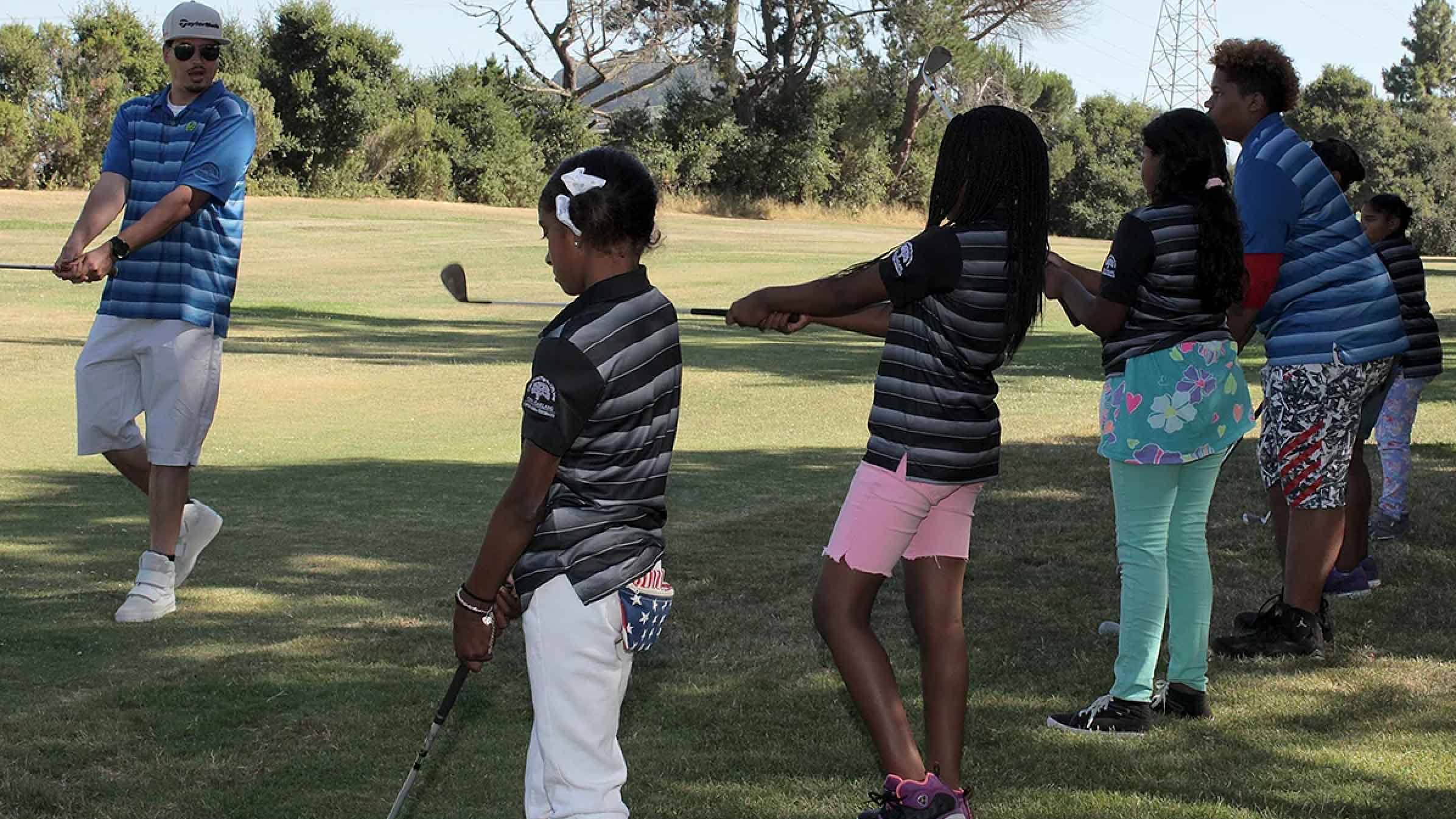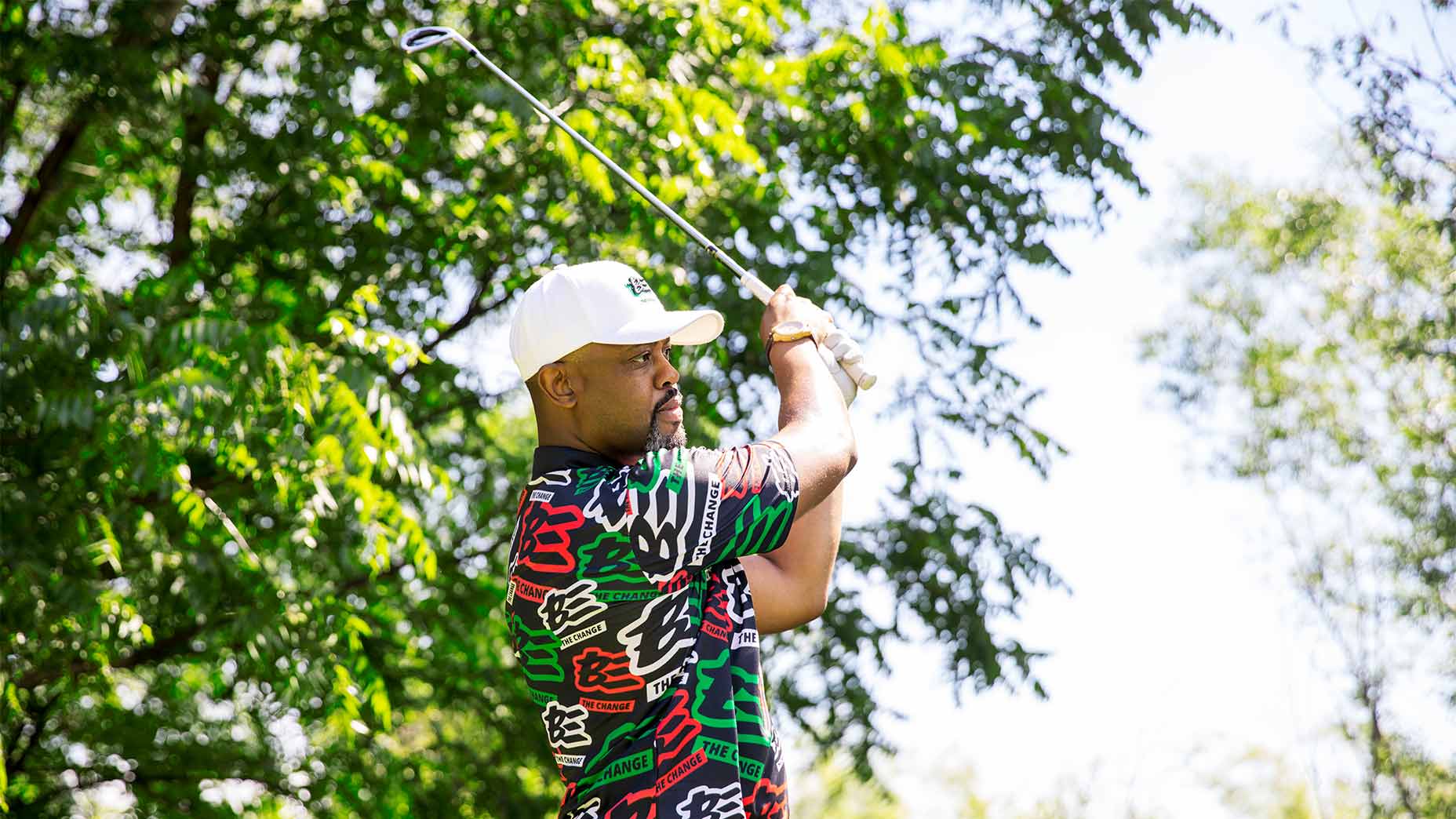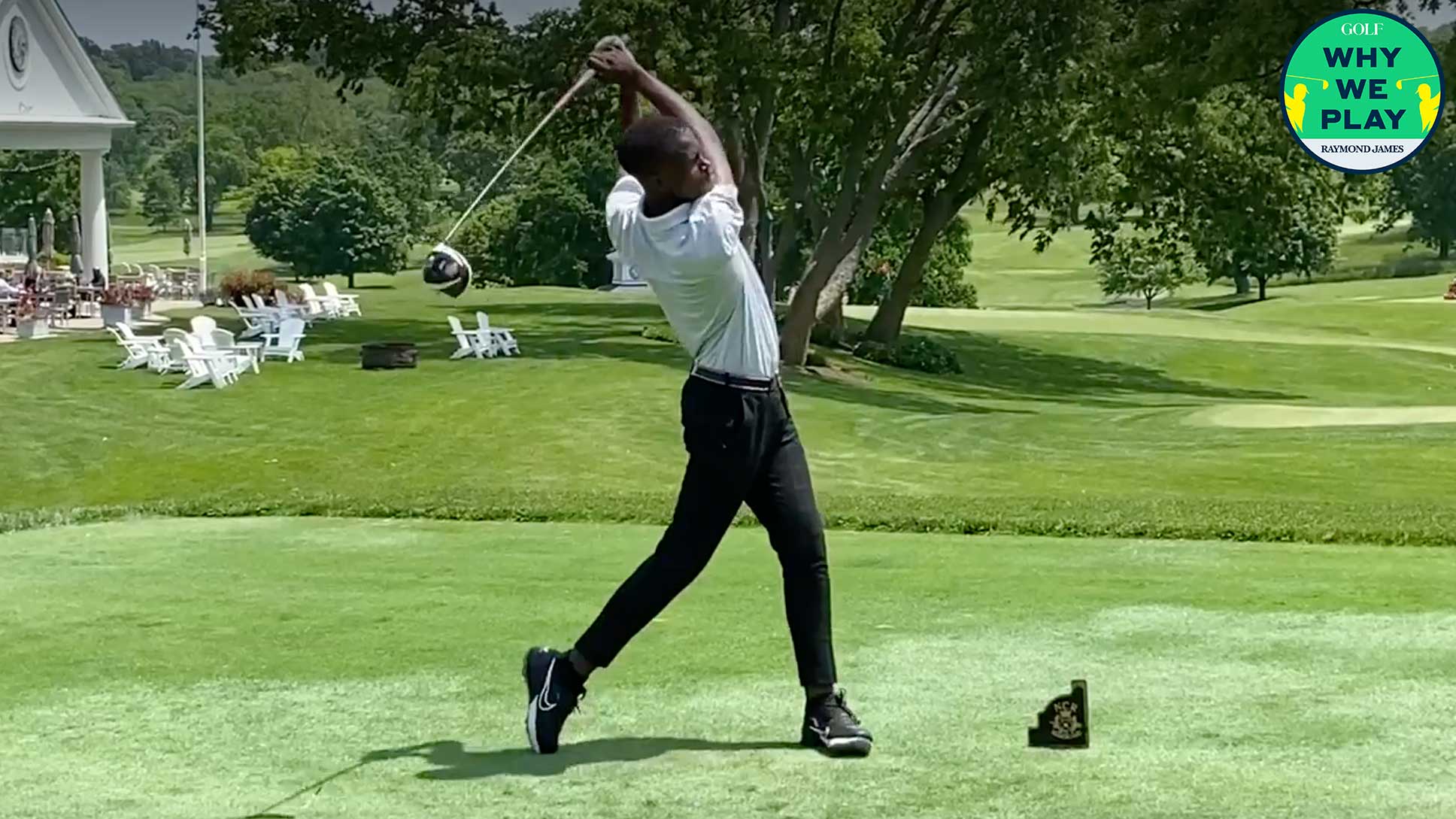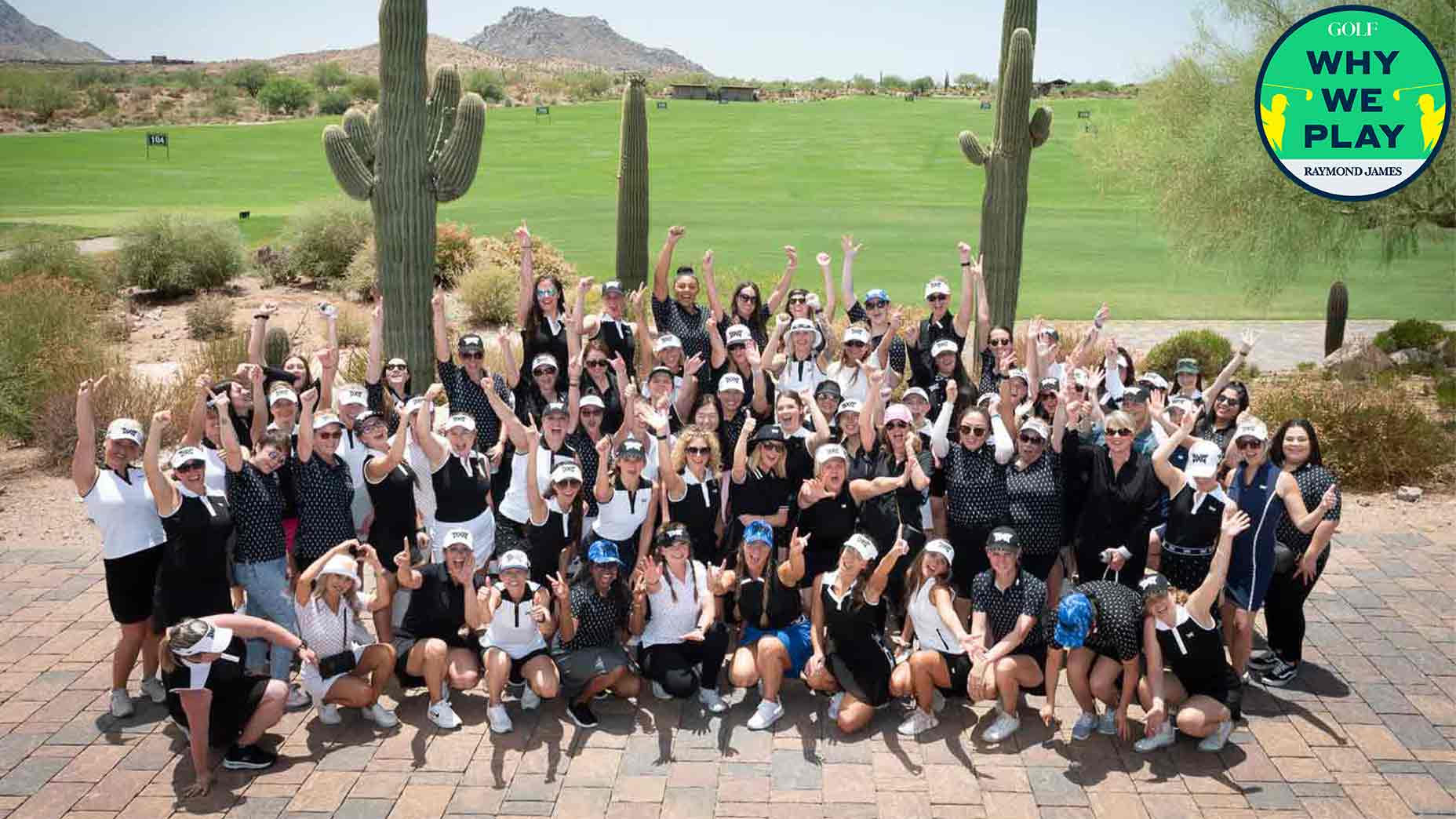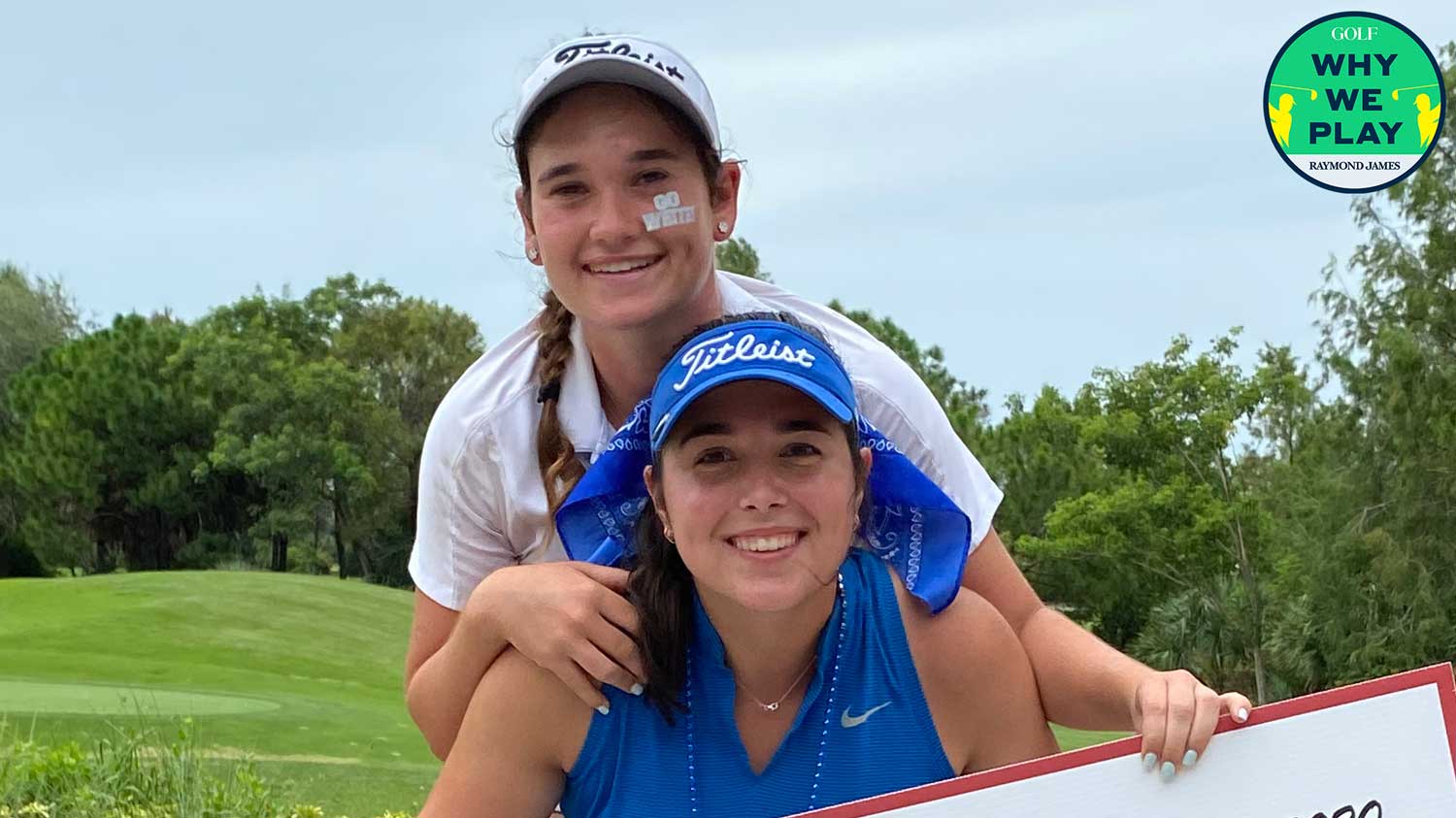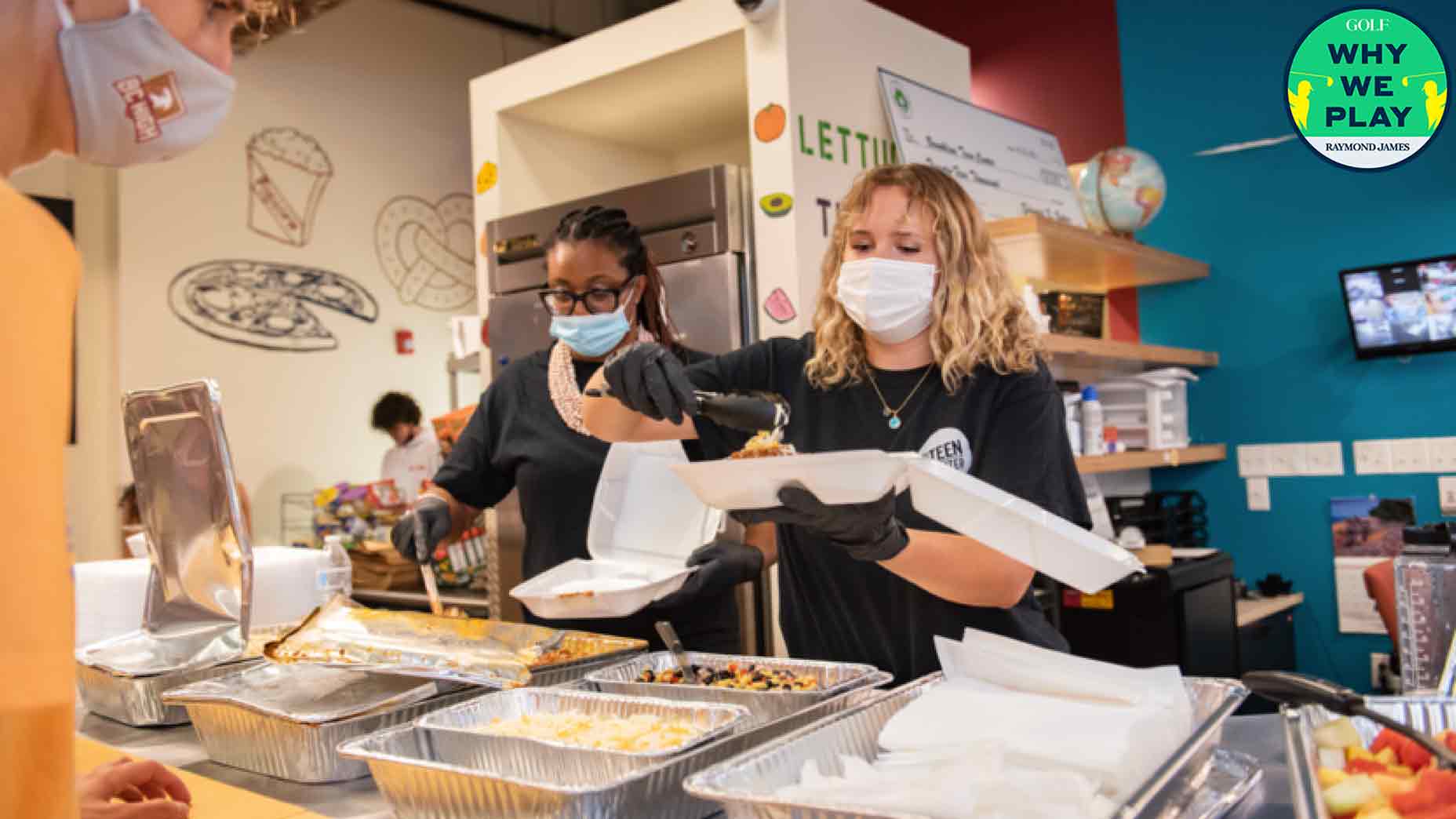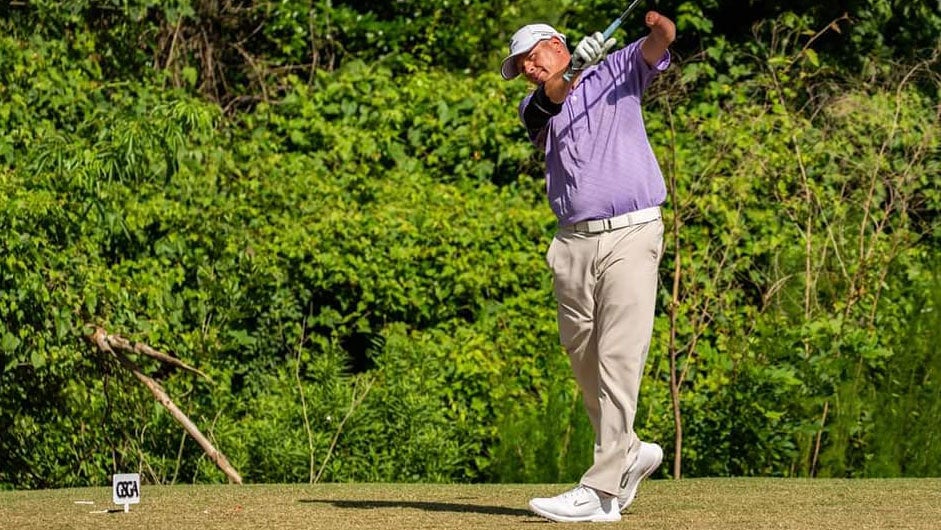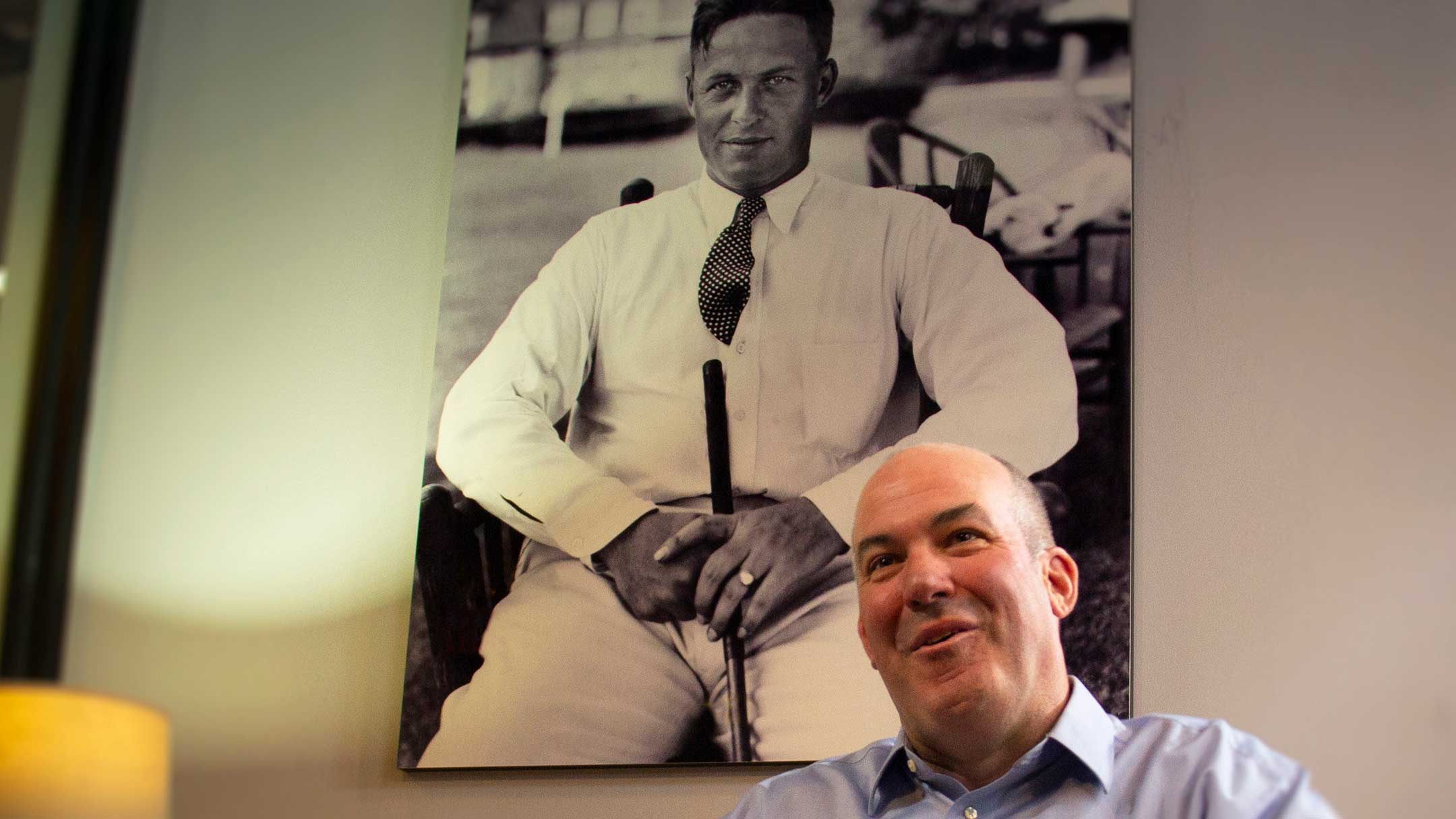‘It’s a form of activism:’ Latina golfers are taking up the game thanks to this woman’s efforts
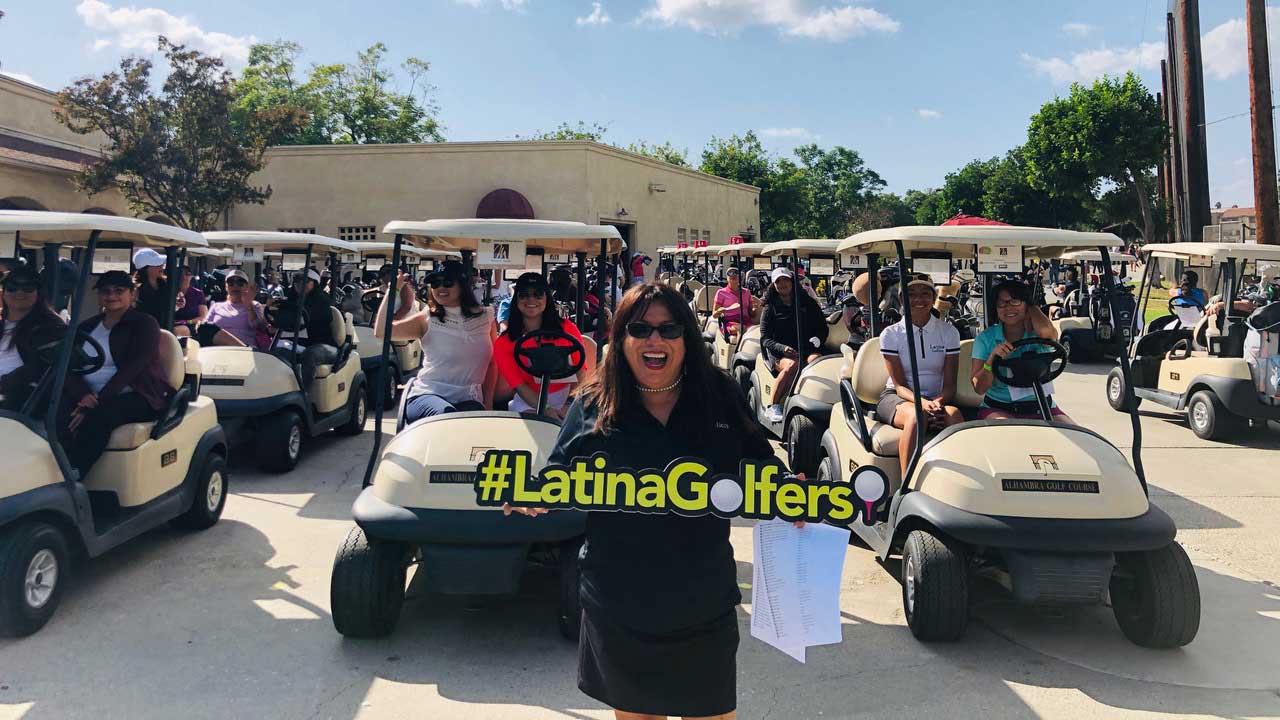
Azucena Maldonado founded the Latina Golfers Association in 2008. Today, it has more than 2,500 members.
courtesy LGA
When Azucena Maldonado talks about golf, she goes a step past what we often hear when we talk about the social aspects of the game and its ability to connect people.
“I feel in my heart that when we become golfers our world grows exponentially,” she says, adding, “The golf community is a big international family. And I love that about golf, that it brings people together and it breaks down cultural and gender barriers. When I meet a golfer, I meet a friend.”
Maldonado is so ebullient about the power of golf that it led her, in 2008, to found the Latina Golfers Association, a California-based organization, which has grown to more 2,500 members. Designed to help bring more Latinas into the game, Maldonado’s organization is a one-woman team, drawing on her background in publicity and marketing. She organizes golf clinics, fashion shows and networking events, all in the service of growing the tent of golf to be more inclusive toward one of California’s — and the nation’s — fastest growing demographics.
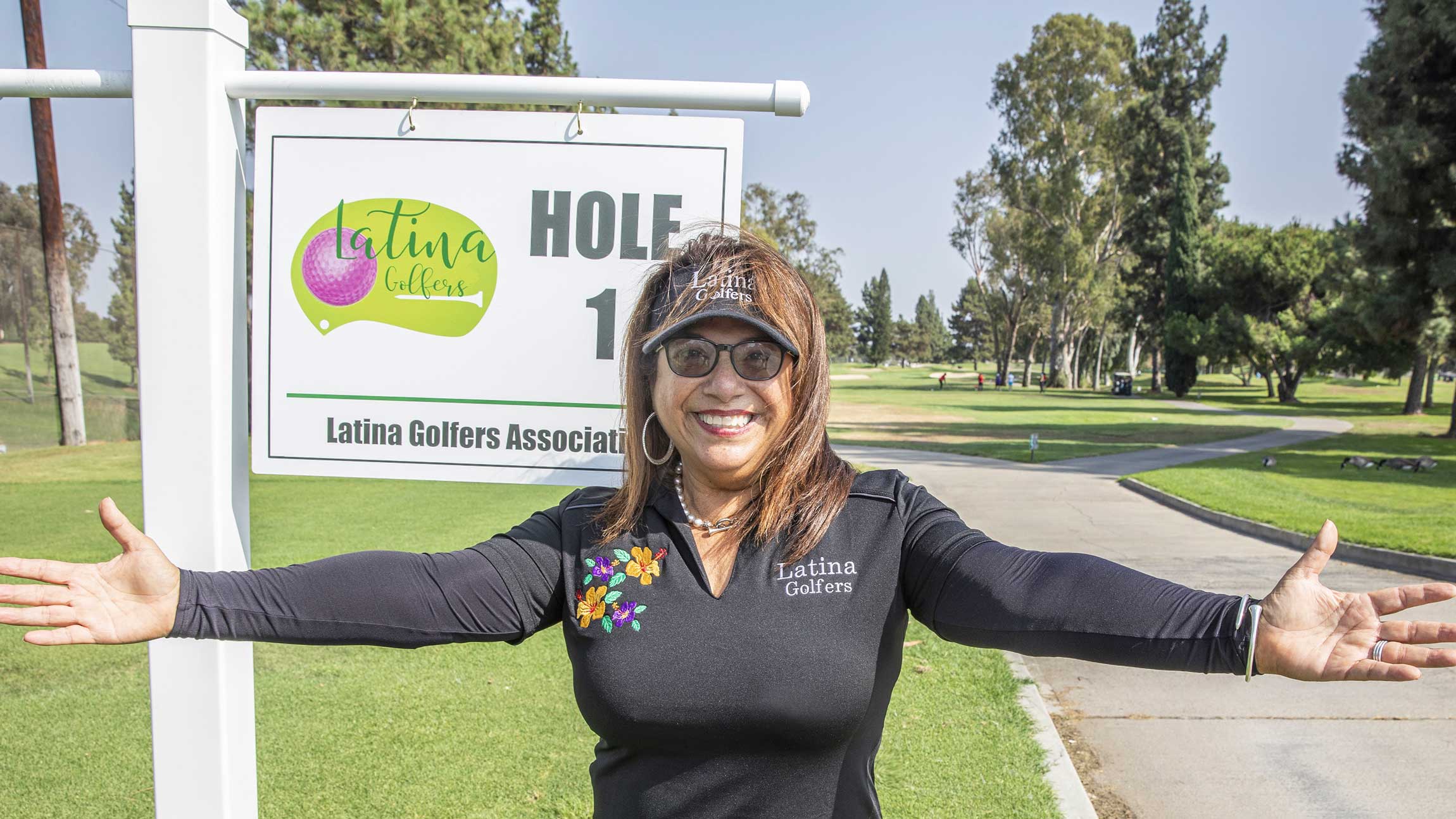
Maldonado was introduced to the game on a date; that relationship didn’t last, but her love affair with golf bloomed. Confined to her regular foursome, though, Maldonado didn’t know of golf’s multitudes.
“I knew nothing about the golf industry,” she says. “I loved to play as often as I could try to get my handicap down. Eighteen holes wasn’t enough. That was all I knew. Then somebody invited me to be an outing for a nonprofit Latino organization. I was completely blown away.”
Still relatively new to Los Angeles at the time, what amazed Maldonado about the game was the varied socioeconomic backgrounds of its participants. The light-bulb moment wasn’t far away. “They all related to me as a golfer, and when I would meet them or see them at receptions or lunches or networking events, they knew who I was,” she says. Maldonado began garnering more invitations to play. “And it finally dawned on me,” she says. “They’re like a hundred men in this field of golfers and only three or four women.”
At first, these numbers confirmed her suspicions. It’s just a big boys’ club. But when she mentioned this to the men who had invited her, they told her to bring her girlfriends out. So, she got to work. Maldonado called area courses about using their facilities. Some, but not all, were receptive to her concept and mission. Those that weren’t are likely regretting that decision as her membership and influence has grown, but her first event was a harbinger of what was to come. Nearly 100 women came out to meet other Latina golfers and network over hors d’oeuvres in a small room of a clubhouse.
By the time we’ve putted out the first hole, the barriers go down.
Then, as now, many of the obstacles remain the same, namely getting women to feel comfortable on the course. Male beginners, Maldonado says, “just go for it,” whereas female golfers worry about being “perfect.”
“We don’t want to look like we don’t know what we’re doing,” she says, beginning to laugh. “On the other hand, a guy doesn’t give a hoot what he looks like.”
Maldonado’s work has been so instrumental the PGA of America has become one of her partners and she’s now eyeing what the next step will be for the Latina Golfers Association, which means expanding into the states where there are scores of women just like her.
Her message on this is clear, “Latina Golfers, for me, is about empowerment and equity and even activism. It’s a form of activism to say we belong here.” If the game is to grow, she adds, you have to focus on one of the country’s fastest growing demographics. Over the first weekend of November, the LGA hosted a girls’ clinic in partnership with the YMCA, expanding its reach into junior golf, and spreading its mission of using “golf to empower women and leverage it as business tool” from a young age.
Asked if her impetus for the LGA was borne out of negative experiences on the course, Maldonado is quick to say it wasn’t but adds, “There have absolutely been a handful of moments when I have felt out of place or looked at like I don’t belong. Of course, it affects me. All I can I do is show up as the golfer and woman that I am. By the time we’ve putted out the first hole, though, the barriers go down because they see that I respect the etiquette of the game, I know what I’m doing. From then on, we’re just fellow golfers.”

